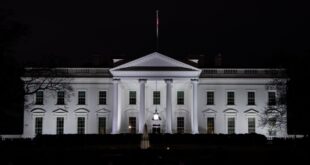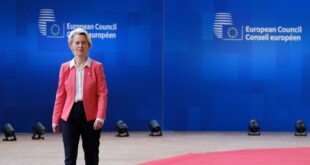Hadi Elis
While much of the world remains fixated on conflict zones elsewhere, an enduring and consequential battle persists between the Turkish state and the Kurdistan Workers’ Party (PKK)—a battle that, at least from one side, has repeatedly seen overtures for peace met with silence or military escalation. Contrary to dominant narratives, it is Turkey—not the PKK—that has consistently refused opportunities for a negotiated resolution.
A History of Denial and Suppression
Since its founding in 1923, the Turkish Republic has pursued policies rooted in the denial of Kurdish identity, language, and political agency. For decades, this systemic repression escalated into military operations aimed not just at disarming dissent, but at erasing Kurdish existence altogether. These policies intensified through assimilation campaigns and armed incursions, particularly in the southeast—what Kurds and many international observers call Kurdistan under occupation.
The PKK was founded in 1978, launching armed resistance in 1984 not out of fanaticism, but in response to decades of erasure. Since as early as 1987, the PKK has repeatedly expressed willingness to engage in peaceful dialogue. In fact, during the 2008–2013 Oslo Peace Process, PKK leaders signed on to key frameworks for negotiation—while Ankara ultimately walked away.
When Turkey officially participated in talks with the PKK, it implicitly recognized the group as a legitimate political and military actor. The international maxim, “We do not negotiate with terrorists,” no longer applied. If Turkey acknowledges the PKK as a party to conflict during peace negotiations, then the terrorism label becomes more a tool of political convenience than legal fact.
The Syrian Equation: Peace Blocked Abroad
Following the breakdown of the peace process, Turkey turned its attention to northern Syria, actively working to prevent Syrian Kurds from forming an autonomous government—an effort that mirrored the Kurdish experience in Iraq. After the fall of Saddam Hussein, U.S. support helped the Iraqi Kurds establish a recognized federal region. Ankara feared a similar outcome in Syria and intervened militarily to stop it.
Rather than supporting local governance by anti-ISIS Kurdish forces—who had been key partners of the U.S. and international coalition—Turkey backed various Islamist militias, many with known ties to extremist ideologies. Some of these groups included Turkish nationals and ultranationalist actors such as the Grey Wolves. Reports of Turkish support for Al-Qaeda-linked factions and Turkish citizens joining salafist networks have been widely documented, yet rarely condemned by NATO allies.
Peace Is Still on the Table—But Ignored
In 2016, the PKK Secretary General penned an open letter to then-President Donald Trump, published in The Washington Post, again calling for peace. Despite these appeals, Western governments have been hesitant—if not outright dismissive—when it comes to recognizing the PKK’s ceasefire declarations or willingness to demobilize.
As someone approached to participate in Track II diplomacy, I refused to engage without seeing a formal, written proposal from Turkey. Time and again, these peace efforts have been stonewalled not by the Kurdish side, but by Ankara.
Now, as the PKK signals a shift away from armed struggle, the burden of response rests on Turkey—and its NATO allies. Without the so-called “terrorism excuse,” Turkey will need to confront its Kurdish issue on political and legal terms, rather than military ones. Yet the international media continues to underreport this development, and Western diplomats often fall in line behind Ankara’s narrative.
War Crimes, Fabrications, and False Flags
The 1990s saw a wave of state-sponsored disinformation, including credible allegations that Turkish military operatives dressed as PKK fighters and carried out false-flag attacks to delegitimize the organization. Meanwhile, Belgium’s top court ruled that the PKK should be considered a non-state armed group—not a terrorist organization—a decision publicly rejected by the Belgian government itself, raising serious questions about rule of law in even established democracies.
In the fight against ISIS, PKK-linked groups in Iraq and Syria played a frontline role. The liberation of Sinjar and the rescue of tens of thousands of Yazidis would not have been possible without them. In Mosul, in Kobani, and across northeast Syria, these fighters were not terrorists—they were allies of the West.
A Double Standard in NATO
While Turkey bombs U.S.-aligned Kurdish fighters and accuses American troops of being a “national security threat,” Washington has largely remained silent. Even when Turkish forces attacked U.S. personnel in Syria and Iraq, there was no significant response from the Biden administration. Worse, the U.S. special envoy for Syria has appeared more interested in accommodating Ankara’s preferences than in supporting America’s Kurdish partners on the ground.
This is not just a diplomatic failure; it is a moral one.
The Turkish government supports factions in Syria that are explicitly:
- Anti-American
- Anti-Western
- Anti-Christian
- Anti-Israel
- Anti-Women
- Anti-Democracy
Yet NATO continues to shield Turkey from international accountability, while criminalizing the PKK—an organization that has not only extended olive branches for peace but has also contributed to global security efforts against jihadist extremism.
The Path Forward
The Kurdish struggle is not simply a domestic Turkish issue; it is a test of Western values. If NATO and its member states continue to turn a blind eye, they risk enabling a policy of state repression and regional destabilization masquerading as counterterrorism.
Peace is a two-way street. The PKK has walked its side of that road—repeatedly. The question now is whether Turkey and its allies are ready to do the same.
If not, history has shown the consequences: cycles of violence, diplomatic hypocrisy, and the slow death of credibility in the international rules-based order.
The choice is no longer the PKK’s. It is Turkey’s—and NATO’s.
 Geostrategic Media Political Commentary, Analysis, Security, Defense
Geostrategic Media Political Commentary, Analysis, Security, Defense





